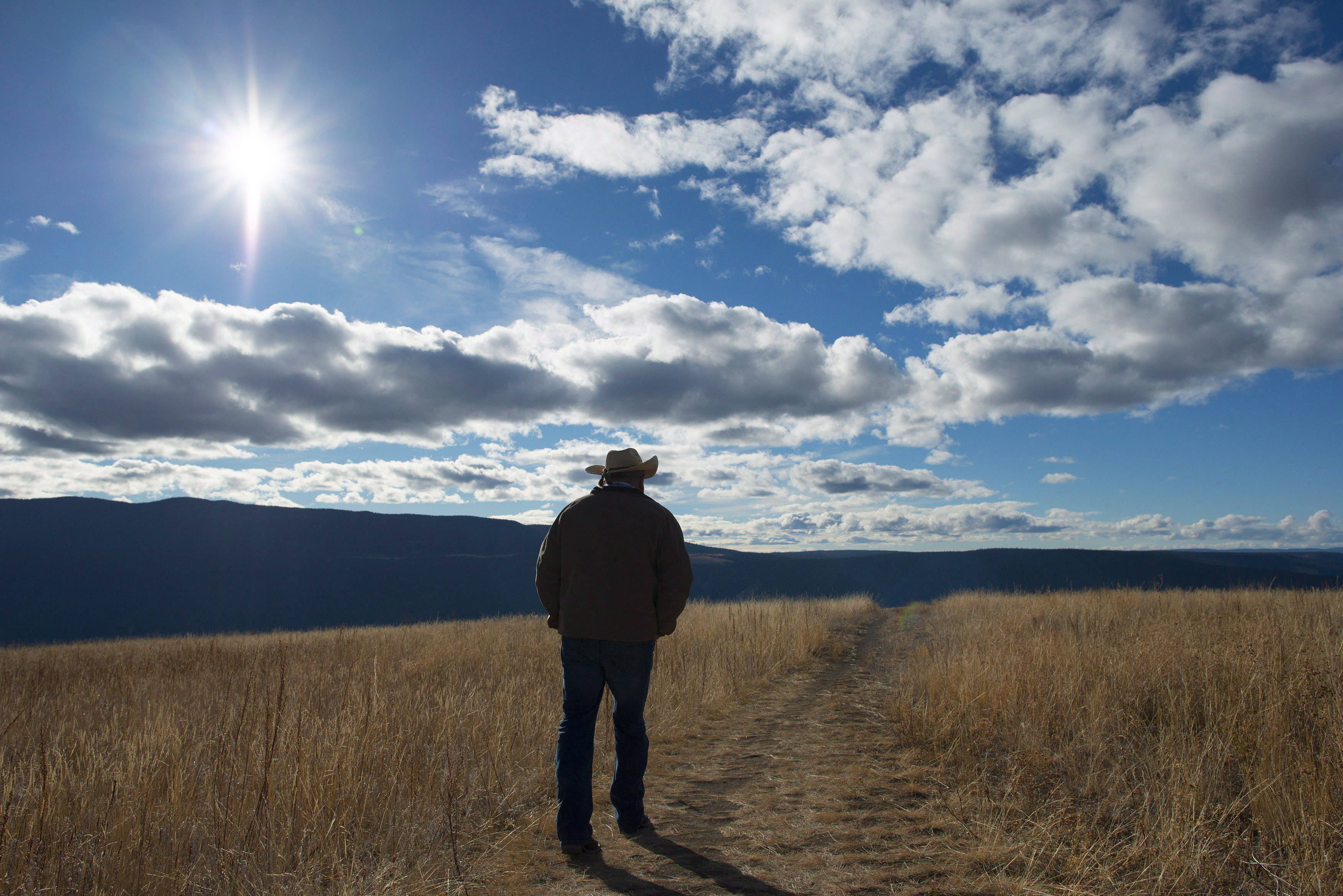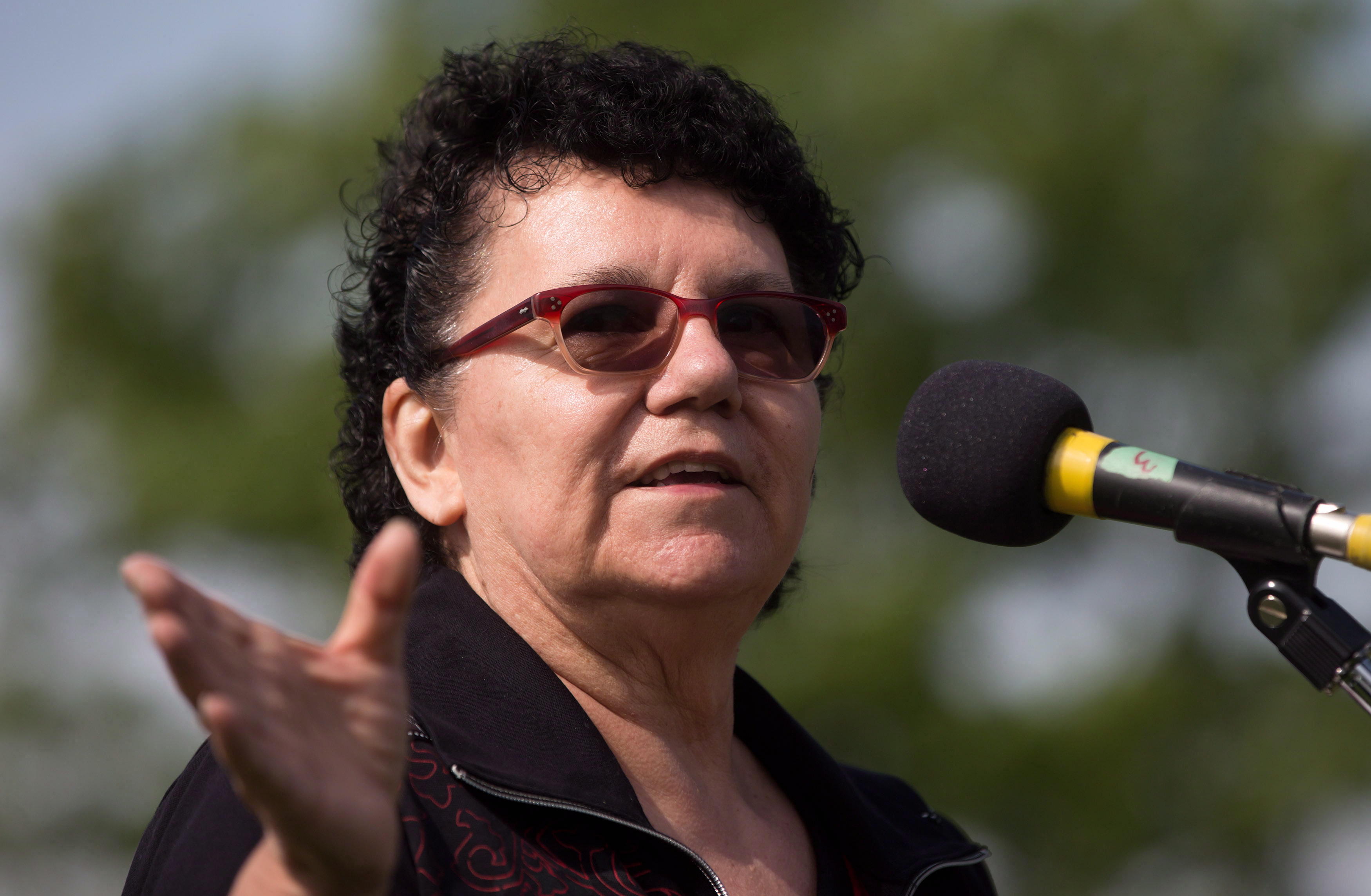Articles Menu
April 11, 2018
Despite what you hear from pundits and politicians, the constitutional rights of Indigenous people are not some secondary part of the Kinder Morgan saga.
Imagine if decades from now a student of Canadian political history is digging into the Kinder Morgan pipeline saga. What kind of picture would she get from scanning the news databases from April 2018?
A frustrated project proponent, Kinder Morgan, puts the development of the Trans Mountain pipeline expansion on hold, amid a pitched jurisdictional battle between the governments of BC and Alberta. The prime minister vows the pipeline will be built, because it’s in the national interest. There is much speculation about how Ottawa might ultimately exert its constitutional authority in the matter. There are protests and people are arrested.
Somehow First Nations and their constitutional issues with the pipeline gets no inches, no airtime.
The Crown has an obligation to consult with the First Nations whose constitutionally protected land and other rights could be impacted by the pipeline. This fact now routinely fades in and out of our public discussions of Kinder Morgan like an inconsequential character in a daytime soap.
But the government’s duty to consult isn’t some secondary story arc.
The duty has been clearly laid out by the Supreme Court of Canada in case after case.
“Where the Crown has real or constructive knowledge of the potential or actual existence of Aboriginal title, and contemplates conduct that might adversely affect it, the Crown is obliged to consult with the group asserting Aboriginal title and, if appropriate, accommodate the Aboriginal right,” the Court wrote in the 2014 Tsilhqot’indecision.
“The duty to consult must be discharged prior to carrying out the action that could adversely affect the right.”

Not even a year ago, the Supreme Court overturned a National Energy Board (NEB) decision to allow Enbridge to conduct seismic testing that could have a negative impact on Inuit hunting and fishing rights, because they were not adequately consulted.
“A project authorization that breaches the constitutionally protected rights of Indigenous peoples cannot serve the public interest,” the Court said in that case.
This duty to consult nations that have claims to land title is particularly relevant in parts of British Columbia, where treaties were not signed with the Crown (land was never ceded).
But even for some of the affected bands in Alberta, where there are treaties, the duty to consult still exists. In the 2005 Mikisew Cree decision, the Supreme Court overturned Ottawa’s plan to build a winter road through Wood Buffalo National Park (which lies on Treaty 8 land) because it had not consulted the people with constitutionally protected rights there.
Treaty rights and land title aside, there are also section 35 rights – hunting and fishing for example – that trigger consultation. The landmark 1990 Sparrow case, involving the Musqueam Indian Band, established a test for infringing on these rights – the Crown must justify the infringement.
“Parliament is not expected to act in a manner contrary to the rights and interests of aboriginals, and, indeed, may be barred from doing so by the second stage of s. 35(1) analysis,” the Court wrote.
It is the Crown – not a corporation such as Kinder Morgan – that had the duty to consult (see more on this in the 2004 Haida decision). The Liberal government itself underlined “the honour of the Crown” in this regard in its principles governing its relationship with Indigenous Peoples.
Did the Crown discharge this duty to consult properly on the Trans Mountain project? Maybe, maybe not.
Many of the First Nations involved (and not just the ones in BC’s lower mainland) are arguing they were not consulted properly, that they were merely talked at by federal officials.
They are also raising the potential for future infringements of their rights, should there be spills from the pipeline.
“Even a small spill into the Coquihalla would devastate salmon in the Fraser River and plunge First Nations into utter destitution,” Cheam First Nation Chief Ernie Crey told a ministerial panel appointed by the Liberal government to study Trans Mountain.

Six bands have taken their case to the Federal Court of Appeal, demanding a judicial review of the cabinet decision approving the pipeline expansion.
And yet, in our conversations about the issue the Indigenous opposition to Kinder Morgan is lumped together with vague descriptions of “protestors” and “opponents.”
“The NEB’s review…did not assess, nor did it purport to address or assess, potential adverse impacts to our rights and title and the proponent Kinder Morgan repeatedly told us that they were not responsible for looking at impact to our rights and title,” Kwikwetlem First Nation Chief Ron Giesbrecht wrote to the ministerial panel.
To go on pretending that this question isn’t at the centre of the debate is to treat Indigenous people with the same dismissive, effacing attitude that has cast a shadow on our relationship for centuries. Ironically, it encapsulates why we are at this juncture in the first place – Indigenous rights are not taken seriously in the public sphere, nor are Indigenous Peoples treated as genuine partners in the federation and in major projects.
Today, many voices are calling for a commitment to collaborative consent on resource projects, including former Supreme Court justice Frank Iacobucci and his co-authors. “Flowing from the model of partnership, Indigenous Peoples should be provided with the opportunity to participate in all aspects — procedural and substantive — of a project or activity that may affect their rights.”
The complex issues around Indigenous consultation, accommodation and consent don’t get much coverage, but they are as central to this Kinder Morgan story as are Rachel Notley, John Horgan or Justin Trudeau.
Can one harbour hope that the student of history 20 or 30 years from now views our April 2018 conversations as peculiar and antiquated?
Photo: Wo Gabriel, front right, of the Squamish First Nation, sings and plays a drum at a news conference in Vancouver on October 2, 2017. THE CANADIAN PRESS/Darryl Dyck.